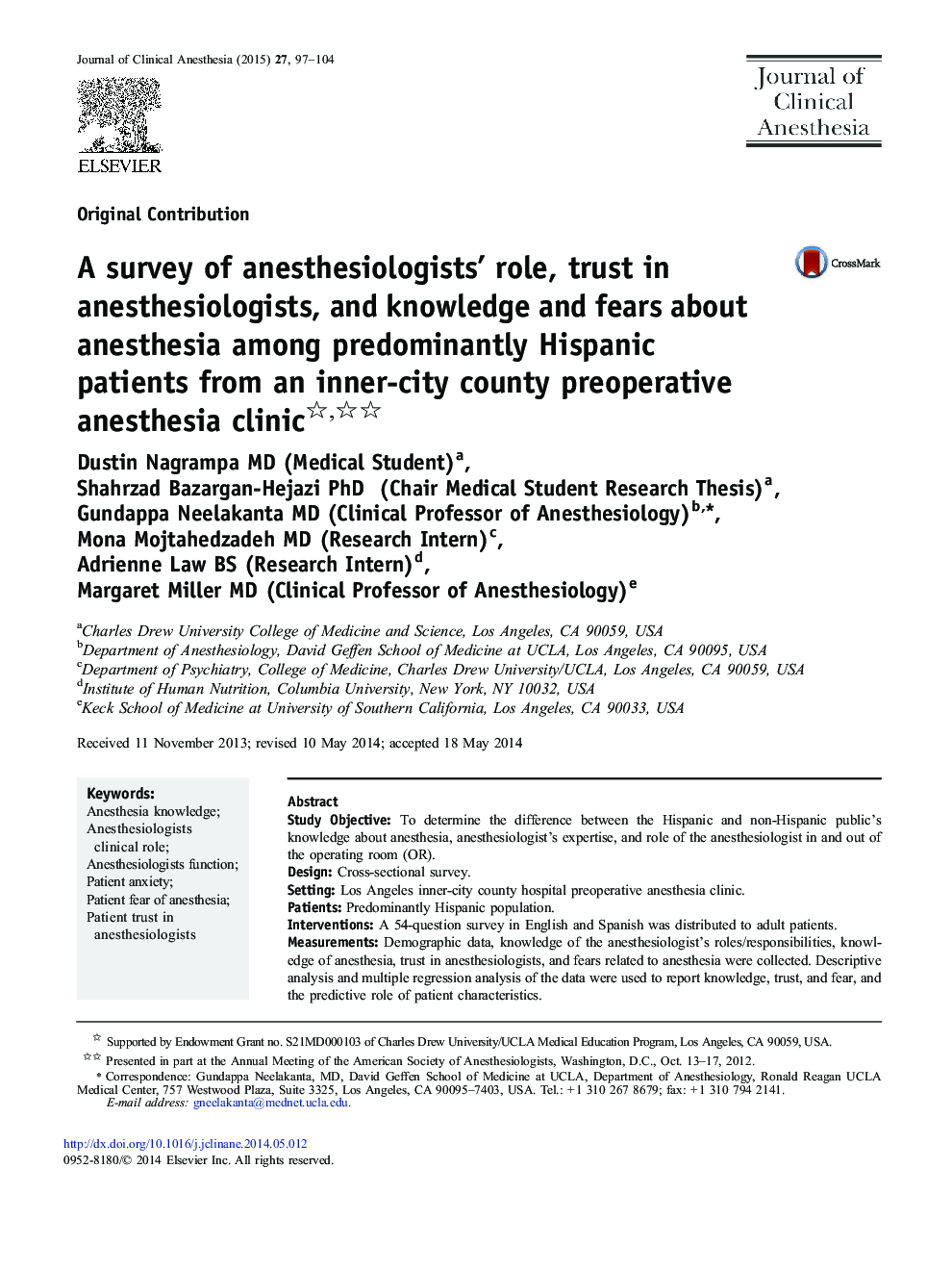| کد مقاله | کد نشریه | سال انتشار | مقاله انگلیسی | نسخه تمام متن |
|---|---|---|---|---|
| 2762415 | 1150712 | 2015 | 8 صفحه PDF | دانلود رایگان |
• Hispanic patients of an inner-city anesthesia preoperative clinic have limited knowledge of the anesthesiologist’s role.
• Most Hispanic patients know that anesthesiologists are specialist doctors.
• Most Hispanic patients know that they put patients to sleep.
• Most Hispanic patients are unsure of their exact role or function in surgery or outside the OR.
• These patients have concerns about rare, devastating complications of anesthesia.
• Education should be targeted preoperatively to Hispanic women and those patients with a chronic medical condition.
Study ObjectiveTo determine the difference between the Hispanic and non-Hispanic public's knowledge about anesthesia, anesthesiologist's expertise, and role of the anesthesiologist in and out of the operating room (OR).DesignCross-sectional survey.SettingLos Angeles inner-city county hospital preoperative anesthesia clinic.PatientsPredominantly Hispanic population.InterventionsA 54-question survey in English and Spanish was distributed to adult patients.MeasurementsDemographic data, knowledge of the anesthesiologist’s roles/responsibilities, knowledge of anesthesia, trust in anesthesiologists, and fears related to anesthesia were collected. Descriptive analysis and multiple regression analysis of the data were used to report knowledge, trust, and fear, and the predictive role of patient characteristics.Main Results300 (88% of eligible pts) completed the survey. Patient demographics were as follows: Hispanics (73%), female (63%), mean age 47 ± 14 years, high school-educated or below (71%), previous surgery (67%), possessing a chronic medical condition (49%), self-reported health of fair to poor (58%). Seventy percent of patients recognized anesthesiologists as specially trained doctors. Mean ± SD trust scores in doctors were 2.6 ± 1.2 out of a maximum 4. Patients with a better perception of their self-health (P < 0.01) and with higher knowledge scores (P < 0.01) had significantly higher trust in the doctors. Women (P = 0.01) patients, those patients with chronic medical condition (P < 0.02), and patients with greater knowledge scores had greater fear or concerns about anesthesia. Mean ± SD knowledge score about anesthesia was 6.3 ± 2.8 (range 0–13). Patients who had surgery previously (P < 0.01) had higher knowledge scores.ConclusionMost Hispanic patients believe that anesthesiologists are specialist doctors and that they put patients to sleep, but these patients are uncertain of their exact role or function during surgery or outside of the OR. High concerns or fears about devastating but rare complications of anesthesia remain. Educational efforts should be directed at this group especially, with the goal of alleviating preoperative anxiety.
Journal: Journal of Clinical Anesthesia - Volume 27, Issue 2, March 2015, Pages 97–104
